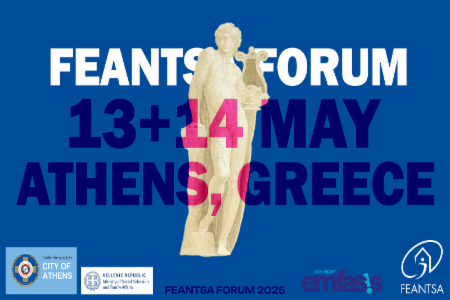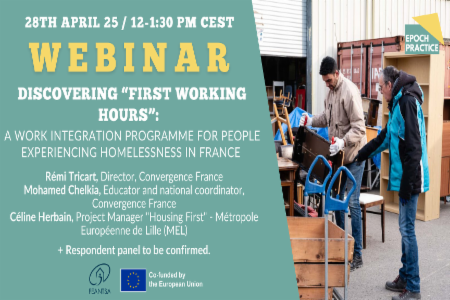Mobile EU Citizens in Precarious Living Conditions:
Results from a survey of 100 mobile EU citizens in Münster, Germany
Bischof-Hermann-Stiftung Münster
Read and download the report here (EN, online PDF)
Read and download the report here (DE, online PDF)
This report contains the findings from a survey of 100 mobile European Union (EU) citizens experiencing homelessness, rooflessness and/or precarious living conditions, which was conducted by staff at the Bischof-Hermann-Stiftung (BHST) in Münster from October to December 2020.
In 2012, BHST staff started to notice an increase in the number of mobile EU citizens experiencing precarious living conditions and/or homelessness present in their various services. Especially in the Haus der Wohnungslosenhilfe (HdW), a BHST emergency shelter for homeless men, an increasing number of homeless and/or destitute EU citizens became visible. Among them were women, pregnant women and families with children from different EU Member States who had come to Münster within the framework of freedom of movement within the EU. These people were mainly making use of the opportunity to have consultations with doctors and nurses provided by BHST for people without health insurance.
Even if people originally accessed the service because of a medical concern, it subsequently often turned out that not only their health situation, but also their social situation was characterised by difficult access to services and disadvantage: unemployment and homelessness, poverty and a variety of experiences of discrimination were particularly common.
The multiple problems of these people presented the BHST staff with a huge challenge. BHST decided to focus on these particularly vulnerable groups in the further development of its support services. This included the establishment of the Europa.Brücke.Münster plus (EBM+) advice centre in 2016, which is financed in part by the Fund for European Aid to the Most Deprived (FEAD).
This report is based on the work conducted by BHST and especially the EBM+ centre and presents data collected as part of the Protecting the Rights of Destitute Mobile EU Citizens (PRODEC) project coordinated by the European Federation of the National Organisations working with the Homeless (FEANTSA). As we hold the firm conviction that practical and real-life information is an essential basis for a better understanding of the living conditions of mobile EU citizens at European level and with our many years of experience in this field, we were happy to participate in this transnational survey project.
Through this documentation of results, we would like to contribute to a better understanding of the situation of mobile EU citizens experiencing precarious living conditions and/or homelessness, in order to give a more accurate picture of the following issues:
- What challenges this group is confronted with and what – often overlooked – strengths they have
- In which conditions mobile EU citizens in Münster live
- How the sometimes restrictive legal framework and various forms of discrimination can affect their circumstances
- Which advice and support services are available and how they are used by the target group
- How the COVID-19 pandemic has affected people’s lives
- What can be done by homelessness organisations and other actors to positively influence the living conditions of these persons.
Parallel to the survey in Münster, similar surveys were conducted in Brussels, Barcelona and Stockholm on behalf of FEANTSA under the PRODEC project, with the aim of collecting concrete data on the situation of the target group in different areas of life and to take a closer look at these, with reference to the legal framework and local conditions. We await the other results reports from the surveys in Stockholm and Barcelona with excitement and anticipation.






